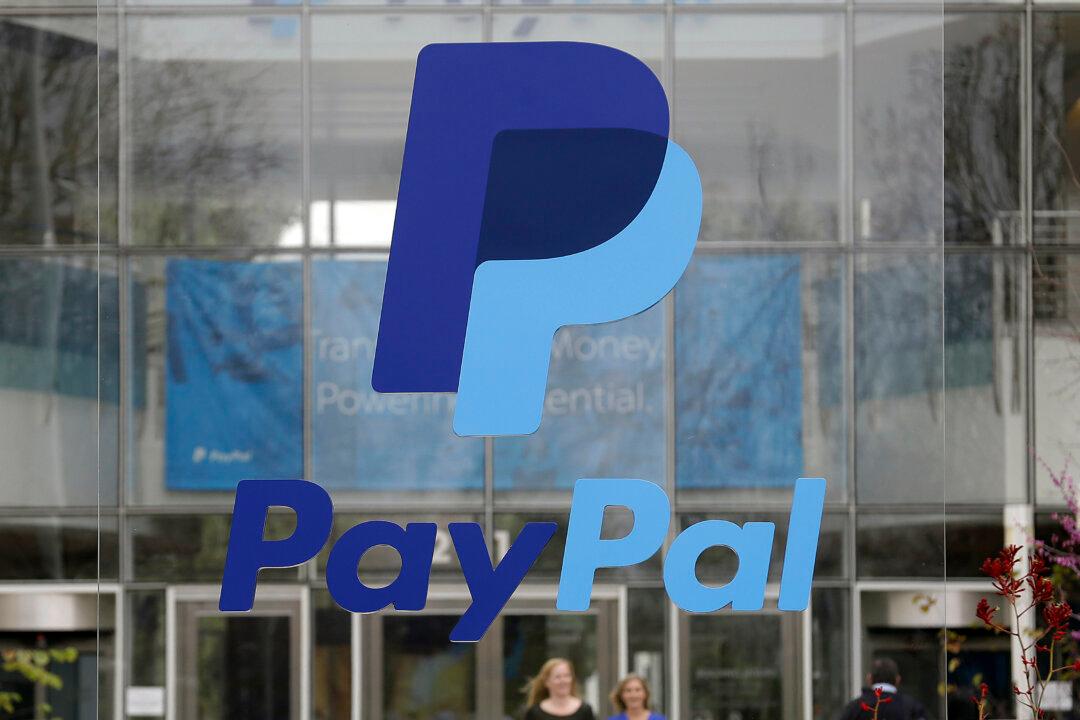Commentary
PayPal on Oct. 8 sent out an update to its terms of use, or acceptable use policy (AUP), that included a shocking addition. It reserved the right to confiscate $2,500 from people’s accounts if they spread “misinformation.” It was a clear announcement of what many already suspected: PayPal has enlisted in the information war.





